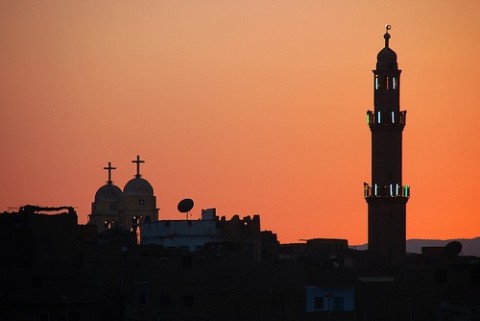Shared devotion

Toward the end of 1960, Trappist monk Thomas Merton, living in a monastery in Kentucky, began a correspondence with Abdul Aziz, a Muslim civil servant in Karachi, Pakistan. Until Merton's death in 1968, the two men exchanged books and long letters in which they discussed their theological differences, introduced each other to their respective traditions of spirituality, asked each other questions about their daily practices of prayer and meditation, and described to each other how they ordered their days. One of the most detailed, personal accounts of Merton's daily life in his hermitage at the Abbey of Gethsemani is recorded in a letter to Aziz.
Merton and Aziz were deeply curious about and appreciative of each other's religious traditions. Merton wrote to Aziz about being stirred to the depths of his heart by the spirit of adoration and holy awe in Islam. Aziz read avidly all the books on Christian mysticism that Merton sent to him.
Neither tried to convince the other to move from appreciation to conversion. Aziz once sent Merton a translation of the Qur'an and suggested he add the chanting of the Qur'an to his daily prayer. Merton declined, explaining that his work was to chant the holy books of his own tradition, and, besides, he didn't want to chant the Qur'an incorrectly. "But," he wrote to Aziz, "I read the Koran with deep attention and reverence." The deep attention and reverence that Merton and Aziz brought to each other's books, traditions and lives undergirded their friendship, and the frank and unembarrassed way they explored their similarities and differences enlivened it.




